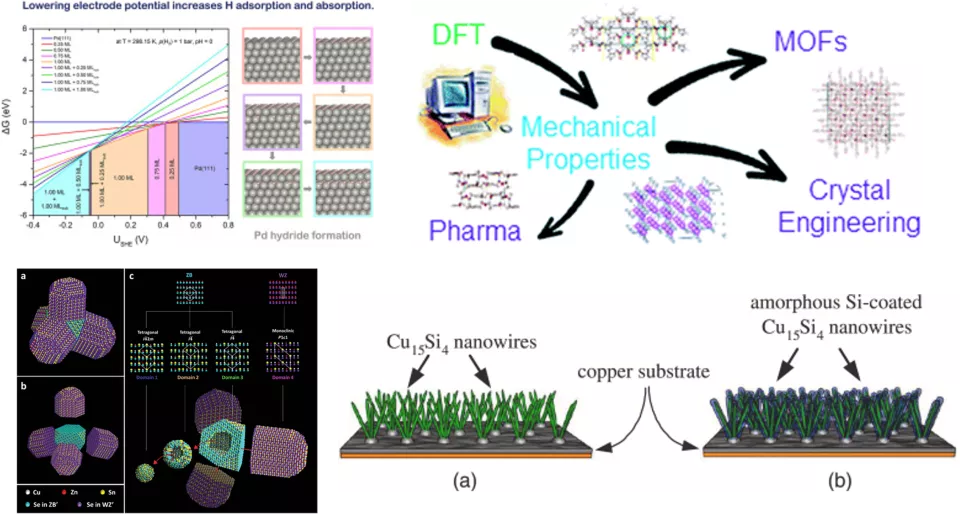Research into advanced ex-situ, in-situ and operando characterization and monitoring of performance, morphological and phase changes in different battery chemistries. Modelling of materials and devices at different length scales is a key focus to understand phenomena occurring from atomistic to macroscopic scales.

Materials characterization is key to all activities in battery and energy development in AMPEiRE, making use of state-of-the-art equipment within the Bernal Institute. This aspect of theme 5 is cross-cutting across themes 1-1, underpinning the developments made in materials synthesis and mechanistic understanding. Complementing this, modelling efforts include DFT calculations of atomic structures, surfaces and interfaces to better understand complex processes and develop new materials. Mathematic modelling has also been harnessed to understand electrode material evolution in Li-ion batteries. Electrochemical impedance spectroscopy has been used as a versatile tool to extensively monitoring battery performance and degradation.
Research outputs
'Electrochemical impedance correlation analysis for the estimation of Li-ion battery state of charge, state of health and internal temperature' Journal of Energy Storage, 2022 https://doi.org/10.1016/j.est.2022.104608
'A coupled electrochemomechanical model for the cycling of a Cu15Si4-hosted silicon nanowire' Journal of Power Sources, 2022 https://doi.org/10.1016/j.jpowsour.2022.231197
'Structure-Property Correlations in CZTSe Domains within Semiconductor Nanocrystals as Photovoltaic Absorbers' Advanced Science, 2024 https://doi.org/10.1002/advs.202402154-
'Density functional theory predictions of the mechanical properties of crystalline materials' CrystEngComm, 2021 https://doi.org/10.1039/D1CE00453K
'Computational unravelling of cathodic hydride formation on palladium surfaces' international Journal of Hydrogen Energy, 2024 https://doi.org/10.1016/j.ijhydene.2023.12.019